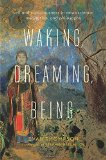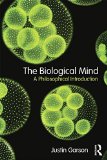
Waking, Dreaming, Being: Self and Consciousness in Neuroscience, Meditation, and Philosophy by Evan Thompson (Columbia University Press, 2014)
(kindle ed.), (amazon.co.uk), (UK kindle ed.)
Book description from the publisher:
A renowned philosopher of the mind, also known for his groundbreaking work on Buddhism and cognitive science, Evan Thompson combines the latest neuroscience research on sleep, dreaming, and meditation with Indian and Western philosophy of the mind, casting new light on the self and its relation to the brain.
Thompson shows how the self is a changing process, not a static thing. When we are awake we identify with our body, but if we let our mind wander or daydream, we project a mentally imagined self into the remembered past or anticipated future. As we fall asleep, the impression of being a bounded self distinct from the world dissolves, but the self reappears in the dream state. If we have a lucid dream, we no longer identify only with the self within the dream. Our sense of self now includes our dreaming self, the “I” as dreamer. Finally, as we meditate — either in the waking state or in a lucid dream — we can observe whatever images or thoughts arise and how we tend to identify with them as “me.” We can also experience sheer awareness itself, distinct from the changing contents that make up our image of the self.
Contemplative traditions say that we can learn to let go of the self, so that when we die we can witness the dissolution of the self with equanimity. Thompson weaves together neuroscience, philosophy, and personal narrative to depict these transformations, adding uncommon depth to life’s profound questions. Contemplative experience comes to illuminate scientific findings, and scientific evidence enriches the vast knowledge acquired by contemplatives.
Google Books preview:
See also: Author’s website, Book on Facebook






